Reports
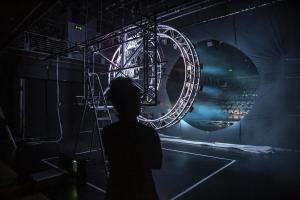
A dance-like visual tribute to quantum physics called Color Force was presented to attendees of the Centre of Advanced Applied Sciences (CAAS) gala assembly at the Archa Theatre.

From today you can buy hearts made of clamps or crocheted sunflowers at Archicafe at FA and Cafe Prostoru_ in NTK and contribute to the collection of People in Need SOS Ukraine. The charity sale was conceived and organized by our design students.
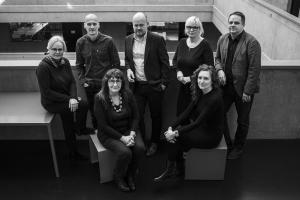
2022/03/17
The new Vice-Deans of our faculty were appointed. They are appointed until the end of February 2026. Jiří Šrubař from the Department of Load-bearing Structures became the Vice-Dean for Education and the Statutory Deputy Dean, Petr Vorlík from the Department of Theory and History of Architecture became the Vice-Dean for Science, Research and Art, Kateřina Rottová from the Department of Architectural Design II is the Vice-Dean for Public Relations, Irena Fialová from the Department of Urban Design is the Vice-dean for International Relations and Irena Šestáková from the Department of Building Theory is the Vice-Dean for Development and Construction. The new management will present its programme of strategic and development goals in 100 days, i.e. during May.
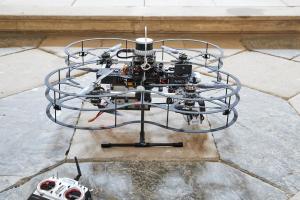
Unmanned helicopters with on-board intelligence, or robotic drones, are helping the conservationists during the restoration of the St. Moritz Church in Olomouc. They have been developed by the Multirobotic Systems group from the Faculty of Electrical Engineering (FEL) as part of a unique project called Dronument (Dron&Monument) supported by the Ministry of Culture of the Czech Republic and in cooperation with the National Heritage Institute (NHI).
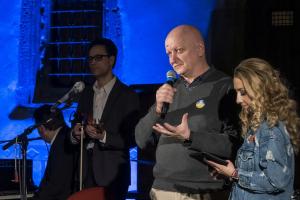
2022/03/10
A packed Bethlehem Chapel applauded the star performers - all of whom performed without claims for reward on Wednesday, 9 March. The children's choir hLásky, Lenka Dusilová, Ivan Hlas, Radůza, Bratři Ebenové were among the performers.
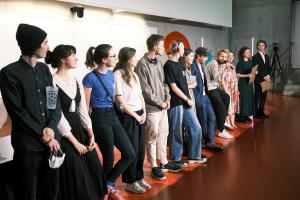
Human scale, a fresh approach to social issues and quality craftsmanship are what the winners of this year's Olověný Dušan focused on. The announcement of the results of the iconic student project competition took place on 3 March at the Faculty of Architecture. The exhibition of the nominated and winning designs will be on display until 17 March.
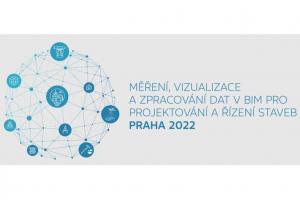
The CTU Rector's Office shared practical experience in BIM from the perspective of a public contracting authority at the national conference MVPBIM2022
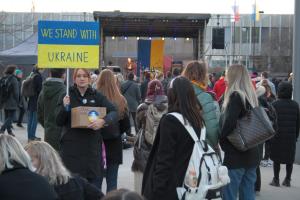
The EuroTeQ alliance, of which CTU is a member, together with 40 other alliances of European universities, yesterday joined in supporting Ukraine. In a joint statement, the alliances also condemned the bombing of Kharkiv National University.
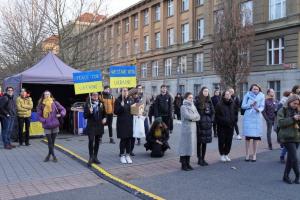
2022/03/04
Students Against the War - a title of yesterday's concert of four bands at Campus Dejvice.
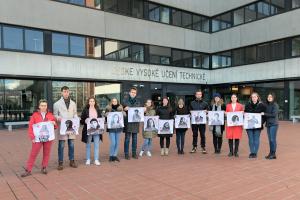
Even at a time when Belarus is officially at Russia's side, aiding Putin's unprecedented attack on an independent Ukraine, the academic world does not forget to support free civil society in Lukashenko's dictatorship. One of the projects is the student 11+1 project, whose tour of Czech universities has now concluded at CTU.